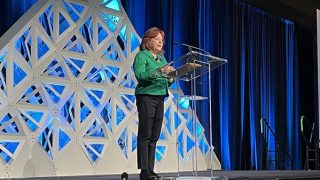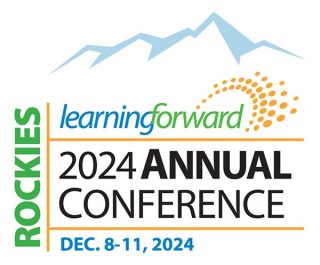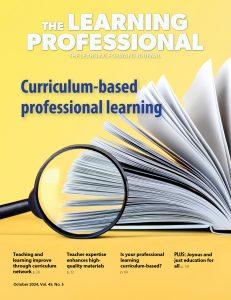DALLAS—Feb. 21, 2013— Today’s release of the MetLife Survey of the American Teacher: Challenges for School Leadership provides valuable information about teacher and principal needs, highlighting the increasing importance of high-quality professional learning.
With the very real and immediate demands of implementing Common Core standards and new assessments along with the creation of new teacher evaluation systems, indications of declining resources for professional learning are discouraging. At the same time, the increase in teachers assuming leadership roles of all kinds signals a moment of opportunity to leverage practitioner expertise and shared responsibility.
In 2009, the MetLife Survey of the American Teacher highlighted how much teachers valued collaboration for learning and problem solving. Learning Forward’s Standards for Professional Learning and definition of high-quality professional development are grounded in a belief that only through job-embedded collaborative adult learning will schools solve their most challenging learning problems for students. When teachers indicate in this year’s survey that their most valuable resources in schools are other teachers, they affirm the ongoing need for collaborative time and structures.
Schools have an obligation to ensure that all teachers engage in continuous learning that helps them develop the knowledge, skills, and expertise to ensure the success of not only their students but their colleagues as well.
Unfortunately, more than 60 percent of teachers surveyed report that their opportunities to collaborate either declined or stayed the same. The continuing decline in teacher satisfaction is also tied to the decline in opportunities to collaborate; those teachers reporting lower rates of satisfaction are in schools with decreasing time and opportunities for collaboration.
In terms of specific challenges educators are facing now, the majority of teachers (92 percent) responding to this survey say they are knowledgeable about the Common Core State Standards. Ninety-three percent say they have the knowledge and skills to implement the standards. Yet far fewer are confident that the standards will improve student achievement. However, those teachers who have already begun to implement the Common Core standards report greater confidence that the standards will have a real impact on students, according to the survey.
In spite of their belief that they are knowledgeable about Common Core, a majority of teachers say that implementing Common Core will be challenging.
There is no doubt that teachers need to experience professional learning that replicates the kinds of learning experiences Common Core outlines for students. Without an immersion in rigorous content, an emphasis on real-world application, and opportunities for authentic problem-solving, teachers won’t be prepared to help schools realize the vision of the Common Core standards.







